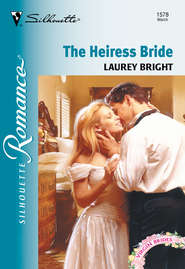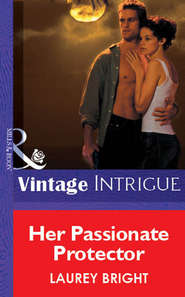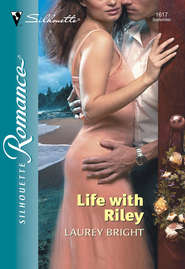По всем вопросам обращайтесь на: info@litportal.ru
(©) 2003-2024.
✖
Dangerous Waters
Автор
Год написания книги
2018
Настройки чтения
Размер шрифта
Высота строк
Поля
“What?” Rogan jumped to the deck, followed by his brother.
Feeling she needed to apologize for her presence, she said, “I’m sorry, I just wondered…”
She didn’t know what she’d wondered, what she’d been thinking. Only that her father had spent a good part of his life on this boat, sailing the Pacific with Barney Broderick.
They weren’t listening to her anyway. Rogan let out one explosive word, Granger swung the door open and they plunged into the gloom inside.
After a moment’s hesitation Camille entered the tiny compartment inside the door and descended a short, ladder-like companionway after the men, taking a few seconds to adjust from the light outside. Then she gasped in shock.
The foam squabs by the table were askew and the covers ripped. Small carvings, shells and pieces of paper lay all over the place. Books had been wrenched from their shelves and some paperbacks torn in two, the matting on the floor shoved aside, and a conglomeration of sailing gear, food stores, ropes and objects that Camille couldn’t begin to identify hauled from storage compartments that gaped open. The railed galley shelves were empty, cupboard doors hung wide and drawers had been upended, the contents of food scattered over everything.
Standing between the two men under the low ceiling, Camille could feel the anger emanating from them both, chill and focused from Granger, hot and fierce from Rogan.
“Who…?” Camille began, but it was probably an unanswerable question.
Rogan swore again before he said shortly, “No idea.” He picked up a book, blowing a cloud of flour off its tooled leather cover, then rubbing his forearm over it. “Bastards.”
His brother’s expression was closed. “We probably shouldn’t touch anything until the police get here.”
The lone constable stationed in Mokohina surveyed the wreckage with Rogan and Granger before returning to the deck, where Camille waited to give him a brief statement.
“Probably teenagers,” he told them, turning to the men. “Can you tell if anything’s missing?”
Granger shook his head. “We were only here for a few minutes last night, and it was dark. Before that, as I told your detective yesterday, neither of us had been on board lately. But the police searched the boat on Tuesday.”
The constable said he would contact the Criminal Investigation Branch in Whangarei. “They might want to take a look, since they’re inquiring into your father’s death.” Suddenly thoughtful he added, “There’s a rumor that he struck it lucky recently.”
Granger gave a quiet, sardonic laugh. “My guess is his friends had some fanciful hindsight after he was…found.”
Nodding as if his own suspicion was confirmed, the policeman closed his book. “Well, I’ll secure the vessel and ask the wharf manager to keep an eye on it.” He glanced at his watch. “If they need a scene examination it’ll probably be tomorrow. We’ll let you know when they’ve finished.”
On the way back to the Imperial, flanked by the men, Camille didn’t like to break the silence, grim on one side and seething on the other.
They were nearing the hotel when Rogan spoke over her head to his brother. “D’you reckon this has something to do with what happened to Dad?”
“I doubt it,” Granger answered. “There are ghouls who study newspapers for death notices, and target homes when the families are at the funeral. This is probably the same sort of thing. Or maybe some young idiots heard the rumor and tried their luck, hoping to find a treasure chest on board.” His scathing tone implied what he thought of them and their gullibility.
When they entered the lobby the noise from the private room had lessened considerably. Granger said, “Time to shoo the diehards into the public bar, I think.”
The young Maori woman behind the desk called to Camille, “Miss Hartley…there’s a package for you.”
Camille excused herself from the men, and the receptionist handed her a small parcel and an envelope. “Have you decided how long you’re staying?” the girl asked.
Having left her departure date open, Camille had become interested in the town and its little-known history, and on learning of Barney’s death felt she should attend his funeral. Now things were complicated.
“We have a full house after the weekend,” the receptionist explained. “It’s the annual Mokohina big-game-fishing tournament. People come from all over for it.”
“I’ll remember that, thanks.”
Opening the envelope, she bypassed the ancient, creaking elevator and started up the stairs. She drew out a single sheet of thick, elegant paper and unfolded a note written in a precise, almost copperplate hand.
This may interest you, it said. Thank you for a very pleasant evening, which I hope to repeat before you leave.
The signature was a flourishing, curlicued James, and he’d added his telephone number.
In the upper hallway she found Rogan lounging against the wall. Startled, she said, “I thought you were still downstairs.”
He straightened. “Granger’s taking care of things. I wondered what you’re doing for dinner. We thought we’d try the Koffee ’n’ Kai café along the road. Care to join us?”
It was extraordinary, the effect he had on her. Whenever they were within meters of each other she was totally aware of his presence. She could feel now the warm prickling on her skin, although he hadn’t moved any closer.
He smiled at her and she reminded herself that Rogan Broderick wasn’t her type, no matter how dazzling his male charisma. “Thank you,” she said, “but I have other plans.”
What plans? her mind scoffed. A lonely dinner in a discreet corner of the dining room or a snack in her own room, and a boring evening making research notes, talking to her tape recorder?
“Maybe some other time?” Rogan suggested.
“Maybe.” She gave him a thin smile and went along the passageway to her room, telling herself not to hurry, and not to look back to check if her sense that he was watching her was right or wrong. But when she heard a door close as she unlocked hers she couldn’t resist a covert glance.
The passage was empty.
“James,” she said into the phone a few minutes later, “thank you so much! It’s a gem.” She placed the little volume on the night table, running her fingers over the gold-embossed pattern on the leather cover and the gilt title on the spine: Journals and Letters of a Lady in New Zealand, 1835-7. “I’ll be sure to return it before I leave.”
“No need,” James Drummond’s light, creamy voice assured her. “It’s a gift. How was the funeral?”
“Oh, that’s very generous. Um…” she said, “…crowded. Mr. Broderick had a lot of friends.”
“And did any relatives turn up?”
Chatting over dinner, she’d told him she didn’t know if Barney had relatives. “Two sons.” One who makes my hormones go crazy. And one who should but doesn’t. “They were in the dining room last night but I didn’t know who they were.”
“Those two big guys?” he asked curiously. “Have you spoken to them?”
“Yes, we had quite a talk.”
“Really? What about?”
“Apparently I inherit part of the boat—the Sea-Rogue—through my father.”
“How…interesting.” He sounded genuinely intrigued. “Anything else?”
“Well, what’s inside it, and possibly some outstanding payments from my father’s last voyage.”
“I’d love to hear all about it. Have dinner with me at my house?”
“Tonight?”
“Do you like fish? One thing about this town, you can always get good fish. And my housekeeper is a very good cook. Or,” he added teasingly, “do you have a date with the brothers Broderick?”











